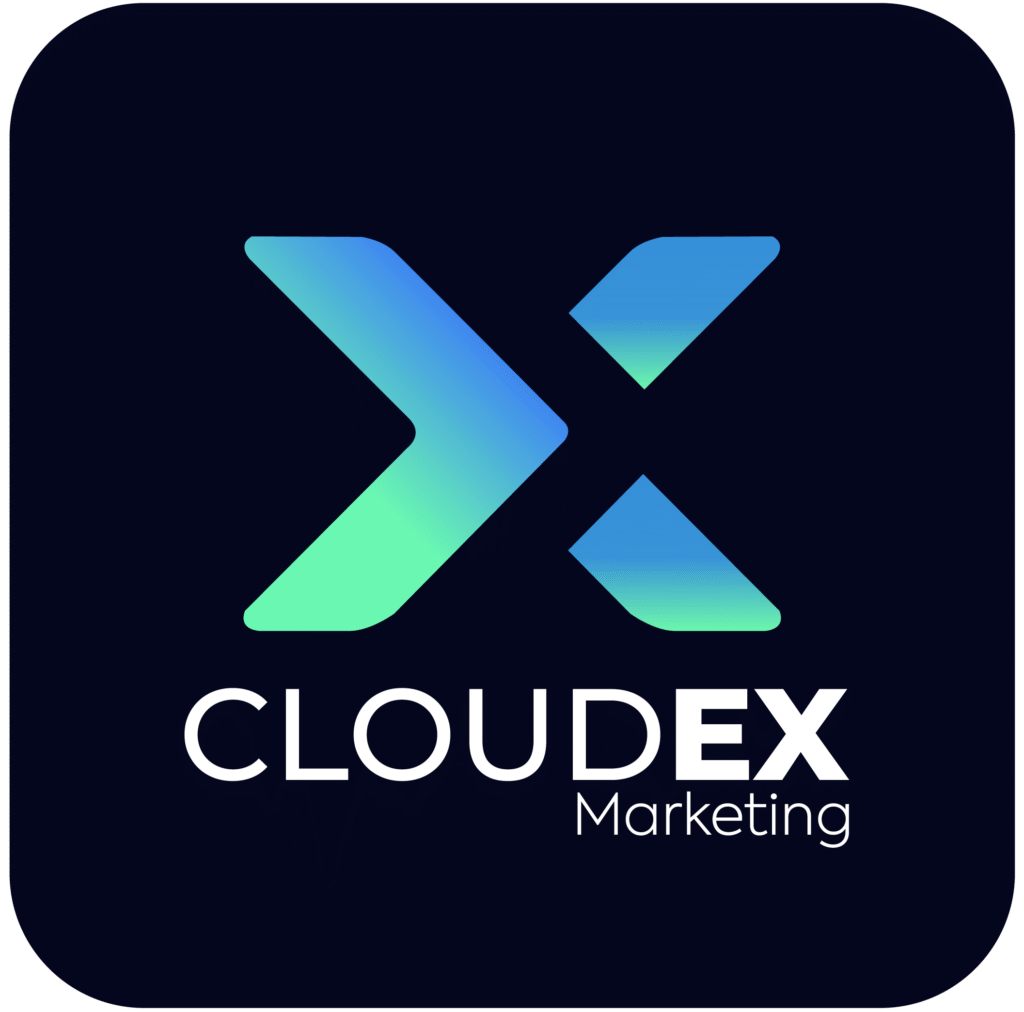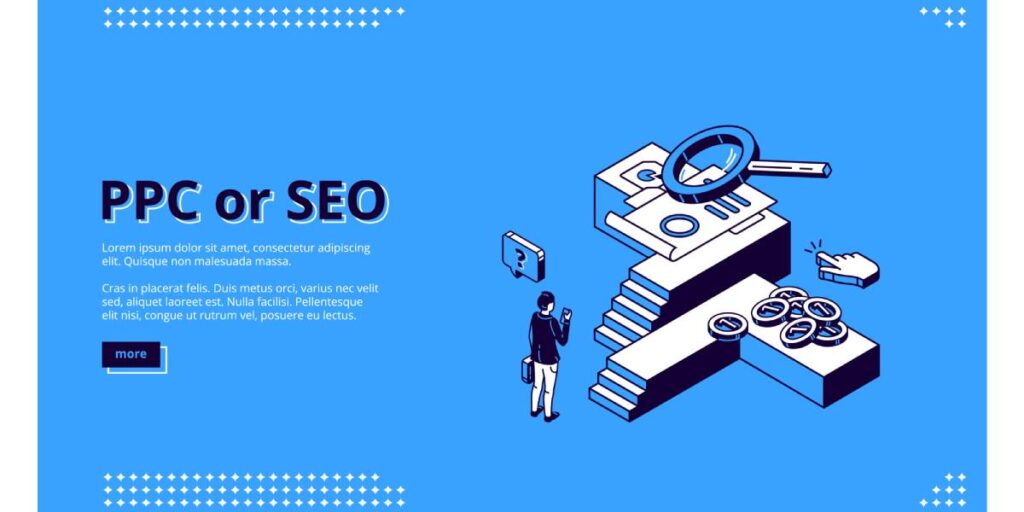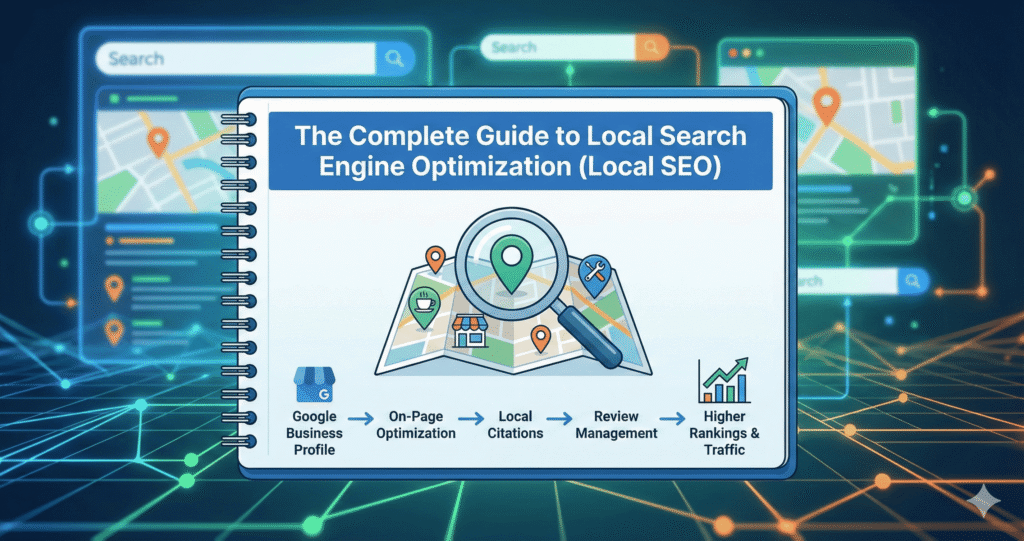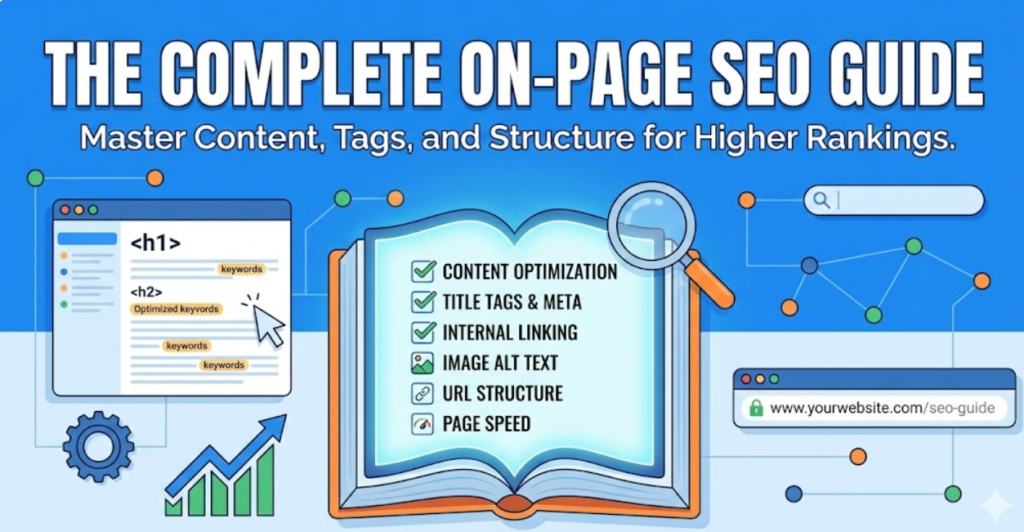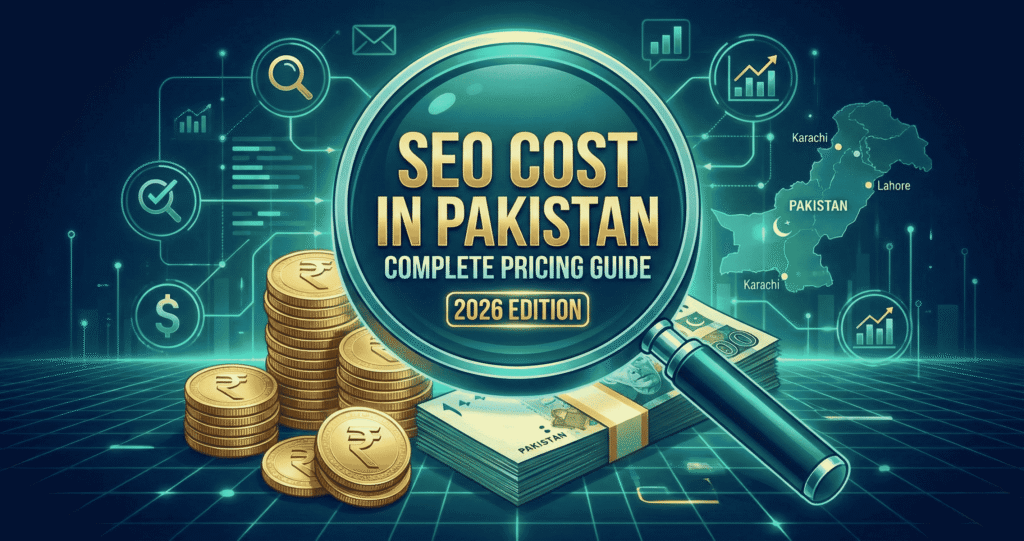SEO and PPC are two core strategies that help businesses appear in front of people searching online. But they work in completely different ways. SEO (Search Engine Optimization) helps your website earn visibility naturally through valuable content and authority, while PPC (Pay-Per-Click) lets you pay for immediate visibility on search results through ads.
Neither is strictly “better.”
They simply serve different purposes that we’ll explore in this guide.
SEO builds long-term trust and growth, while PPC delivers instant exposure and quick results.
Let’s break down SEO vs PPC clearly so you can decide which one fits your goals, budget, and growth timeline better.
But before that, let’s recall what each of them actually is!
What Is SEO (Search Engine Optimization)?
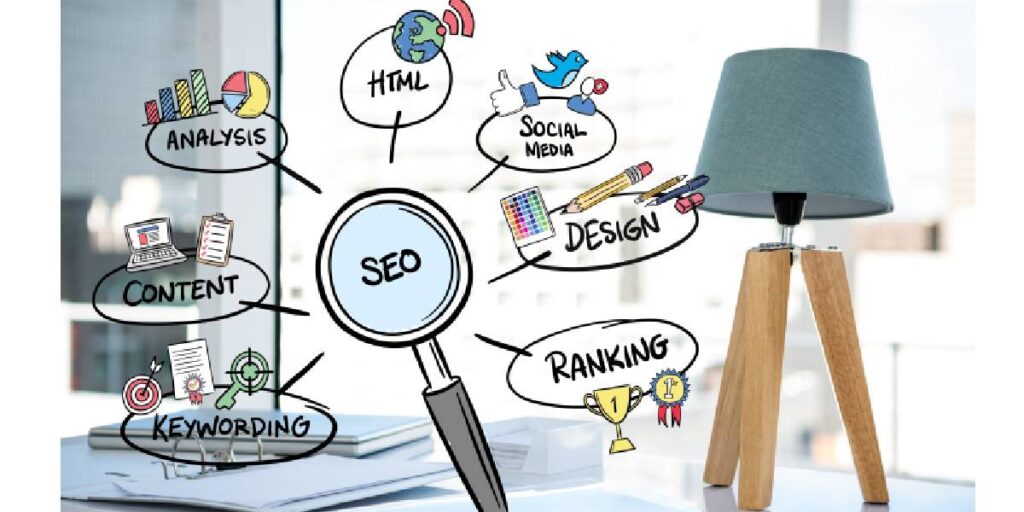
SEO means improving your website so it ranks higher on Google organically. Without paying for each click. It’s about helping search engines understand your content and proving that it’s the most useful answer for what people are searching.
It works through a mix of quality content, keyword optimization, backlinks from credible sites, and a solid site structure that’s easy to navigate. User experience also plays a big role. It is about how fast, clear, and mobile-friendly your site is.
Behind the scenes, search engines use crawlers (automated bots) to scan web pages, collect data, and add it to an index. Then, algorithms (or complex sets of rules) evaluate hundreds of factors like content quality, link authority, and user intent to decide which page appears first when someone searches.
If you’re new to SEO and want a full beginner-friendly walkthrough of the fundamentals. From keywords to backlinks. Check out our SEO fundamentals guide for deep insight.
So, the Bottom Line is:
SEO is slow but steady. It pays off big if you stay consistent. It builds long-term trust and credibility because you’re earning your spot, not buying it. It takes time, but the visibility it creates lasts far beyond any ad campaign.
What Is PPC (Pay-Per-Click Advertising)?
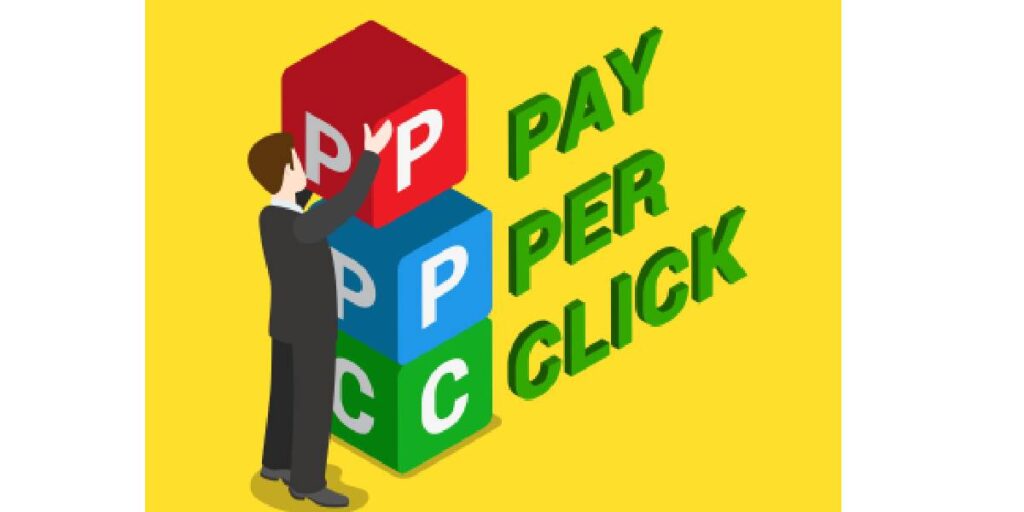
PPC (Pay-Per-Click) is paid advertising where your website shows up instantly at the top of search results. But you pay each time someone clicks your ad. It’s like renting visibility instead of earning it over time.
Here’s how it works:
- Platforms like Google Ads run on an auction system.
- You bid on keywords people search for, such as “buy shoes online.”
- If your ad and bid are competitive, and your Quality Score (a mix of ad relevance, landing page quality, and expected click rate) is strong
- Your ad appears near the top.
For example,
- An eCommerce brand pays $2 per click for “buy shoes online.”
- If 100 people click, that’s $200 spent.
- Regardless of how many purchases happen.
- PPC success depends on optimizing key metrics like CTR (Click-Through Rate), CPC (Cost Per Click), and ROAS (Return on Ad Spend) to ensure your ad spend brings real returns.
So, here’s the thing:
- PPC is fast and powerful. But it stops the moment your budget does.
SEO vs PPC: Key Differences at a Glance
Before choosing one, here’s the difference between SEO and PPC across the key areas that shape your traffic, conversions, and overall digital growth.
| Factor | SEO | PPC |
| Cost | No cost per click; time and effort investment | Pay per click; instant but budget-dependent |
| Speed of Results | Slow build-up | Instant visibility |
| Traffic Type | Organic & consistent | Paid & temporary |
| Conversion Rate | Long-term, higher trust | Immediate but vary |
| Maintenance | Continuous updates | Ongoing ad spend |
| Best For | Brand authority, long-term growth | Launches, promotions, testing |
| Measurability | Tools like Google Search Console, Analytics | Highly measurable via the Ads dashboard |
| Sustainability | Keeps working after effort | Stops when you stop paying |
| Complexity | Requires technical & content strategy | Requires bidding, targeting & ad copy skills |
SEO vs PPC: Key Differences in Detail
1. Cost
Cost shows how much you spend to bring people to your website, and understanding an SEO vs PPC cost comparison helps you see where your marketing budget makes the biggest impact.
Every digital strategy has two kinds of costs:
- Monetary (cash you spend)
- Opportunity (time and effort you invest instead of something else)
With SEO, you don’t pay Google directly for clicks. But you do invest in technical optimization, like fixing crawl errors, improving Core Web Vitals, and creating high-quality backlinks. All part of your overall SEO pricing & PPC budget.
These steps need tools such as
- Ahrefs
- Semrush
- Screaming Frog
All of them require time or a subscription.
If you’d like to understand exactly how much SEO services typically cost and what factors affect pricing, explore our SEO Pricing Guide. It breaks down agency rates, tools, and deliverables in simple terms.
SEO spending usually spreads out over months, making it more sustainable in the long term.
On the other hand, PPC works like a digital auction. You bid on keywords in Google Ads, and each click deducts money from your campaign budget. Whether or not it converts.
Highly competitive terms like “insurance” or “lawyer near me” can cost $30–$80 per click. PPC delivers instant traffic but demands continuous spending and active monitoring to keep ROI positive.
SEO is an investment that compounds over time. PPC is rent. You pay to stay visible, and the moment you stop paying, the lights go out.
2. Speed of Results
Speed defines how quickly you start seeing traffic, leads, or conversions after launching your strategy. In digital marketing, time-to-result is crucial, especially if you’re launching a new product or testing market demand.
With SEO, results take time because Google’s crawlers need to index and evaluate your content quality, backlink profile, and authority signals. It takes 3–6 months (sometimes more, based on the market competition) before rankings stabilize. Algorithm updates, domain age, and competition all affect how soon you’ll see impact.
PPC skips that waiting period. The moment your ads are approved and your bidding is active, you appear at the top of the search results.
Within hours, you can start tracking impressions, clicks, and conversions. That’s why PPC is ideal for product launches, flash sales, or when you need immediate visibility.
In conclusion, SEO builds momentum slowly but stays strong for years. PPC races ahead instantly. But stop the second your budget does.
3. Traffic Type
Traffic type shows where your visitors come from. Either naturally through search engines or via paid advertising. It’s one of the most important metrics because it determines how sustainable your visibility really is.
With SEO, traffic is organic. That means people find your site naturally through unpaid search results. This type of traffic grows from quality content, keyword relevance, backlinks, and good user experience.
Over time, once your pages rank well, this flow of visitors continues. Even if you don’t actively spend money every day.
In contrast, PPC brings paid traffic.
Your visibility depends entirely on your budget and bids. Each click costs money, and once you stop paying, the traffic instantly drops to zero. However, it’s highly targeted. You can choose exactly who sees your ads based on demographics, intent, or keywords.
So, the thing is:
SEO traffic is earned and lasting. PPC traffic is bought instantly. Great for quick wins but not for long-term consistency.
4. Conversion Rate
Conversion rate shows what percentage of your visitors actually take action. Whether that’s buying a product, filling out a form, or subscribing to a newsletter. It’s the true test of how well your traffic turns into results.
With SEO, conversions are built on trust and intent. When people find your site organically, they tend to stay longer, explore more pages, and believe your brand is credible because Google ranked it high.
This means SEO-driven traffic usually converts better in the long run, though it takes time to reach that point.
On the other hand, with PPC, conversions happen instantly since ads target ready-to-buy users. But results depend heavily on your ad relevance, landing page experience, and competition level. A mismatched ad or a weak landing page wastes clicks fast.
SEO builds slower but stronger conversions rooted in credibility. PPC delivers quick wins. But it needs tight targeting and constant optimization to keep conversion rates high.
5. Maintenance
Maintenance means the continuous effort required to keep your SEO or PPC campaigns performing well. In digital marketing, nothing is “set it and forget it.” Both need maintenance, but in very different ways.
With SEO, maintenance involves updating content, fixing technical issues, refreshing keywords, and monitoring algorithm updates. Google changes its ranking factors frequently, so staying visible requires ongoing optimization and new backlinks.
The good news? Once your SEO foundation is strong, small regular tweaks maintain your rankings for a long time.
At the same time, PPC needs constant spending and supervision. You must track performance daily, adjusting bids, testing ad copies, and refining audiences. The moment you pause your campaigns or stop paying, your visibility vanishes instantly.
SEO needs effort, PPC needs money. SEO maintenance sustains results; PPC maintenance sustains spend.
6. Best For
Every marketing strategy has its sweet spot. What it’s best used for.
When comparing SEO vs PPC for business growth, your decision depends on goals, timeline, and budget.
SEO works best for long-term growth. It’s ideal if you want to build brand authority, earn consistent organic traffic, and lower your cost per lead over time. For content-driven sites, service providers, or brands wanting sustainable visibility, SEO is the smarter long game.
At the same time, PPC is great for immediate impact. It’s perfect for new product launches, limited-time promotions, or testing different offers and keywords. You appear instantly on top of Google, even in competitive niches. But only as long as your budget allows.
Conclusively, SEO builds your brand’s foundation for tomorrow. PPC drives traffic today. The best results come when both work together.
7. Measurability
Measurability defines how easily you can track results. From traffic and conversions to return on investment (ROI). In digital marketing, data isn’t optional. It’s how you know what’s working and where to adjust.
With SEO, tracking is done through tools like:
- Google Search Console
- Google Analytics
You can measure keyword rankings, impressions, click-through rates, bounce rates, and how users move through your site. However, SEO data takes time to mature. It’s trend-based rather than instant.
PPC gives real-time insights. Platforms like:
- Google Ads
- Meta Ads Manager
They show immediate data on impressions, clicks, cost per click (CPC), and conversions. Even your exact ROI down to the last cent. This helps you tweak campaigns on the spot for better performance.
SEO gives you long-term trends for strategic growth. PPC delivers instant numbers for rapid decision-making. Both are measurable. Just on different timelines.
8. Sustainability
Sustainability is how long your strategy keeps working after active efforts stop.
SEO builds momentum. Once your site ranks, it continues to bring in visitors for months or years.
On the other hand, PPC’s results stop immediately once your budget runs out, offering zero long-term sustainability.
9. Complexity
Complexity refers to how much skill and technical know-how a strategy needs.
SEO demands an understanding of site structure, keyword mapping, and algorithm updates.
PPC requires expertise in bidding, targeting, ad copywriting, and optimizing campaigns for ROI. Both have learning curves, but in different areas.
When to Use SEO and When It Works Best
SEO works best when you want sustainable, long-term traffic growth and brand credibility that compounds over time. It’s not about quick wins. It’s about building digital assets that keep performing even when you’re not spending money on ads. A key reason many brands choose SEO over PPC is for long-term visibility.
When SEO truly works:
SEO is perfect for businesses that rely on information, expertise, or reputation.
Think of blogs, educational sites, service-based companies, SaaS brands, or healthcare providers. These industries benefit from a steady flow of organic visitors searching for answers or solutions.
SEO helps position your brand as the go-to expert through consistent SEO vs PPC marketing insights that reinforce your authority online.
For example
- A software company can publish detailed product guides and rank for “how to automate workflows,” attracting leads for years.
- A dentist or doctor can show up for “best dental clinic near me” and keep bringing in local patients without paying for every click.
- Similarly, education platforms can dominate searches for “IELTS preparation tips” or “online MBA programs” through quality content and backlinks.
The reason it works:
Search engines reward authority and topical depth. The more quality content your site publishes around a topic. The more reputable links it earns, the stronger it becomes in Google’s eyes.
Over time, your domain gains E-E-A-T (Experience, Expertise, Authoritativeness, and Trustworthiness) signals. This means your pages start ranking faster, staying longer, and outperforming newer competitors with less credibility.
Unlike PPC, SEO traffic doesn’t vanish when your budget ends. It keeps sending visitors as long as your content remains updated and relevant.
That’s why even global brands like HubSpot, Canva, and Ahrefs continue to invest heavily in SEO.
Because it scales with time, not just spending.
If you’re patient and strategic, SEO wins the long game. It’s slow at first, but once it gains momentum, it becomes your strongest and most cost-efficient growth engine.
When to Use PPC and When It Works Best
PPC works best when you need instant visibility, fast leads, or quick campaign testing. It’s designed for speed. Your ads appear on top of Google the moment your campaign goes live, making PPC advertising vs SEO a clear choice for brands focused on immediate impact.
When PPC truly works:
If you’re launching a new product, hosting an event, or running a seasonal offer, PPC is your go-to. It lets you target high-intent audiences right away. People are actively searching for what you sell.
For example, a startup offering “AI-based resume tools” can run Google Ads to test if users click and convert before investing months into SEO content.
Similarly, eCommerce brands use PPC during holiday sales or new arrivals to generate traffic spikes fast. Even established companies use PPC to retarget visitors who didn’t convert earlier, reminding them about products they viewed.
The reason behind PPC works:
PPC success depends on keyword bidding, Quality Score, and ad relevance. Platforms like Google Ads use an auction model. You bid for keywords, but your placement also depends on how relevant your ad and landing page are.
Smart advertisers use the following to boost click-through rates:
- Audience segmentation (age, interests, geography)
- Ad extensions (callouts, sitelinks, location pins)
It’s not just about paying the most. It’s about paying smart.
For example, bidding on long-tail keywords like “affordable digital marketing agency for startups” costs less and converts better than broader ones like “digital marketing.”
PPC is your sprint, not your marathon.
It’s perfect for fast wins, market testing, and brand awareness in the short term. But remember, once the budget stops, so does the visibility. Use it wisely as part of a bigger, balanced strategy.
Combining SEO and PPC (Best of Both Worlds)
You don’t always have to choose. SEO and PPC work together beautifully. When used side by side, they create a balanced digital strategy that delivers both speed and sustainability.
Unlike SEO, which compounds results over time, PPC and SEO strategies complement each other when you want both instant traction and long-term brand growth.
Most startups lean toward PPC first, and that’s completely understandable. When your business is new, you want visibility today, not six months later.
PPC delivers that!
Your ads go live, and within hours, you start seeing clicks and inquiries. But here’s the reality:
- PPC gives speed, not stability.
The moment you stop paying, traffic disappears.
On the other hand, SEO builds digital equity. Each optimized blog, backlink, and keyword strengthens your long-term visibility. Even if you pause spending, the rankings and organic traffic remains.
That’s why many successful startups combine both:
- Using PPC for instant traction and SEO for consistent, compounding growth.
Real-world scenario:
A new eCommerce brand selling sneakers.
They run PPC ads for “buy running shoes online” to get quick conversions while simultaneously building SEO content for “best running shoes for beginners.”
Over time, their SEO rankings start generating steady, free traffic, while PPC continues bringing immediate buyers.
How SEO and PPC work together:
- Use PPC to test keywords before building full SEO content around them.
- Retarget visitors who found you via SEO using PPC ads on Google or Meta.
- Combine data from both campaigns to make smarter marketing decisions.
- Leverage PPC analytics (CTR, conversion rate) to refine SEO focus areas.
According to Google’s Economic Impact Report, businesses earn $8 in revenue for every $1 spent on Google Ads.
Impressive!
But that stops once your ad spend does.
Meanwhile, SEO keeps reducing your cost per acquisition (CPA) over time as organic reach grows.
You’ve to think both short-term and long-term.
Use PPC to drive instant visibility and SEO to secure lasting authority. Together, they form a full-funnel growth strategy. Quick wins today, steady results tomorrow.
Common Mistakes Businesses Make (and What to Avoid)
Most businesses fail not because SEO or PPC don’t work. But because they use them the wrong way. The tools are powerful, but without the right strategy and patience, they easily waste both time and money.
1. Ignoring analytics or data tracking
If you’re not measuring, you’re guessing. Many brands skip setting up Google Analytics, Search Console, or ad tracking pixels, meaning they have no idea what’s actually performing. Data isn’t just numbers; it’s the map that guides every smart marketing decision.
Here’s the solution:
- Always start with proper tracking.
- Link your site to Google Analytics, Search Console, and your ad dashboard before spending a dollar.
- Review metrics weekly.
- Clicks, bounce rate, conversions.
- To spot what’s working and what needs fixing.
2. Expecting instant SEO results
SEO isn’t a sprint. It’s a compounding process that takes months to show strong results. Businesses that quit early or switch tactics too fast lose the momentum they were quietly building behind the scenes.
Then what’s the right approach?
- Set realistic timelines.
- Give SEO at least 3–6 months to establish visibility.
- Focus on consistency.
- Publishing quality content, building backlinks, and improving site structure gradually.
- The growth curve starts slowly, but it snowballs over time.
3. Running PPC with poor targeting
Launching PPC without audience segmentation or negative keywords is like shouting in a crowded room. You’ll spend money, but most clicks won’t convert. Precision targeting, by location, interest, or search intent. Turns wasted spend into profitable campaigns.
Here’s the fix:
- Refine your targeting.
- Use negative keywords, adjust bids by location and device, and track which audiences deliver the best ROI.
- Let data decide where your ads show. Not guesswork.
4. Not aligning landing pages with keywords
One of the biggest conversion killers is a mismatch. If your ad or ranking promises “free trial software,” but your landing page talks about pricing, users bounce instantly. Alignment between search intent, ad copy, and landing page design is crucial for both SEO and PPC success.
Here’s how to fix it:
- Match every keyword and ad to a landing page that fulfills the promise.
- Keep messaging consistent, make CTAs clear, and ensure the page loads fast.
- Think of it as delivering what your visitor already expects to see.
5. Neglecting ad testing or budget planning
Running one ad forever is a silent money leak. Testing variations (A/B testing) in ad copy, visuals, and CTAs helps you find what truly converts. Likewise, without a clear budget plan, PPC campaigns overspend or stop too soon before learning what works.
Here’s the smart approach:
- Test continuously.
- Headlines, descriptions, visuals, and offers.
- Set a daily or weekly ad budget cap, and analyze results before scaling.
- Controlled experimentation keeps your cost per conversion low and your ROI rising.
Cost Breakdown: SEO vs PPC in Real Terms
When exploring differences between SEO & PPC, cost is a crucial factor common to both.
SEO costs time and expertise, while PPC costs money per click. But both deliver excellent returns when managed strategically.
SEO Costs:
Hiring an SEO agency ranges from $500 to $5,000/month, depending on the scope.
Content creation, link building, and technical optimization.
DIY SEO requires tools like Ahrefs, SEMrush, or SurferSEO costing $100–$300/month plus consistent time investment in content and updates.
PPC Costs:
Google Ads average cost-per-click ranges from:
- $1–$2 for eCommerce
- $3–$6 for professional services
- and $8–$15 for legal or finance niches.
High-intent industries naturally pay more per lead but get quicker conversions.
| Factor | SEO | PPC |
| Upfront Cost | Low to moderate (mostly time, content, and tools) | High (depends on bid and competition) |
| Ongoing Cost | Continuous optimization & content updates | Constant ad spend to stay visible |
| ROI Timeline | Slow start, compounds over time | Fast results, drops when ads stop |
| Typical ROI Range | 300–1,000% over long term | 200–400% short term (campaign-dependent) |
| Scalability | Grows exponentially with content depth | Scales only with higher budget |
But Which One Really Pays Off in the End?
SEO follows a compounding return model. It starts slowly because search engines need time to crawl, index, and trust your site. But as your domain gains authority, rankings rise, and organic traffic grows steadily without additional spending.
Over time, each new page or backlink multiplies your visibility and lowers your average acquisition cost.
On the other hand, PPC delivers linear returns.
The moment you activate your ads, you get clicks and conversions.
Yet, once the budget stops, visibility drops instantly because there’s no residual ranking benefit. It’s highly efficient for short-term goals but unsustainable without consistent funding.
That’s why most high-performing brands combine both strategies. PPC for instant traction and SEO for long-term stability and lower lifetime costs.
Future of SEO and PPC: What’s Changing with AI
While debating SEO vs. PPC, Artificial Intelligence (AI) is common in both. AI is reshaping both SEO and PPC. How content ranks, how ads target, and how users search.
AI in SEO
AI is transforming search through features like Search Generative Experience (SGE) and “AI Overviews” from Google LLC that can craft concise answers and summaries for user queries.
Because of this, SEO now demands semantically rich content, uses structured data (schema markup), and addresses intent rather than just keywords.
Google states that AI Overviews direct traffic to a wider diversity of websites, showing a shift in how websites need to be optimized.
This change has made Answer Engine Optimization (AEO) an essential layer of SEO strategy. You should explore this evolving connection further in our AEO vs SEO guide and apply it to your business’s website for stronger visibility.
AI in PPC
In PPC, AI tools are automating and optimizing campaign performance in real time. Machine learning now powers bidding, budget allocation, and even creative testing.
For example, marketers report a 20% reduction in cost-per-click or an uplift in conversions by using AI-driven PPC automation.
Audience prediction, dynamic creative optimization, and smart bidding (based on conversion data) mean that PPC campaigns will increasingly require a human strategy combined with AI execution. The tools do the heavy lifting, but the vision must come from marketers.
Final Thoughts
There’s no one-size-fits-all answer when it comes to SEO vs PPC. Both work brilliantly, but for different business goals and timeframes.
If you’re looking to build long-term credibility and organic visibility, SEO is your best ally. It takes time, but the results compound, bringing in consistent traffic without paying for every click.
On the other hand, PPC advertising shines when you need instant leads or brand visibility, such as for product launches, promotions, or testing new markets.
For startups and small businesses, the smart move is to combine both strategies. Use PPC campaigns to drive quick results and gather real-time data, while your SEO strategy works in the background to strengthen your online presence for the long run.
Together, they create a balanced, sustainable digital growth engine.
If you’re unsure which direction fits your business goals best, Cloudex Marketing will help you design a data-driven marketing strategy tailored to your audience and budget. One that builds immediate traction and lasting growth.
Frequently Asked Questions
Here are some of the most commonly asked questions about SEO vs PPC.
1. Is SEO better than PPC?
Neither is universally better. It depends on your goals. SEO builds long-term visibility and credibility, while PPC delivers instant traffic. The ideal approach involves using both for balanced, sustainable growth.
2. Should startups invest in SEO or PPC first?
Startups usually begin with PPC campaigns for quick visibility and leads, then gradually shift toward SEO for long-term, cost-effective traffic. It’s best to allocate part of your budget to both from the start.
3. How much does SEO cost compared to PPC?
SEO costs include content creation, link building, and optimization tools, ranging from $500 to $5,000 per month, depending on scope. PPC charges per click, with competitive industries paying $2 to $80 per click.
4. Which gives faster results? SEO or PPC?
PPC wins for speed. You can start generating clicks within hours of launching a campaign. SEO, on the other hand, takes several months to build authority and consistent rankings.
5. Is SEO cheaper than PPC in the long run?
Yes. Once established, SEO continues to bring in traffic without ongoing ad spend. PPC stops the moment you stop paying. Over time, SEO reduces your cost per acquisition significantly.
6. Can SEO and PPC work together for better results?
Absolutely. Combining SEO and PPC gives you the best of both worlds: instant visibility from paid ads and steady organic growth from SEO. Insights from PPC data can even help refine your SEO strategy.
7. How much should I spend on PPC ads?
That depends on your goals and industry. Small businesses start with $500–$2,000 per month, testing different campaigns and adjusting based on ROI and conversion rates.
8. Does PPC affect organic SEO ranking?
No, running PPC ads doesn’t directly impact your SEO rankings. However, it boosts brand visibility and click-through rates, which indirectly help your organic performance over time.
9. Which gives better ROI for small businesses?
SEO offers better ROI in the long run because traffic keeps coming without constant payment. But PPC provides measurable short-term returns, making it ideal for testing new offers or driving quick sales.
10. Which one is better for brand awareness?
Both work differently. PPC ads get your brand seen instantly, while SEO builds lasting authority and trust. Using both ensures your business stays visible across all search touchpoints.

